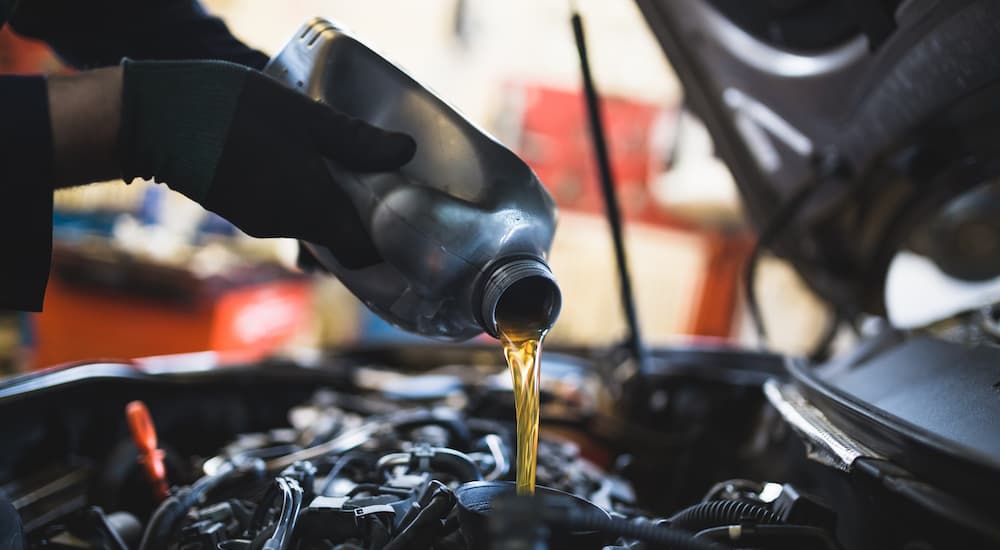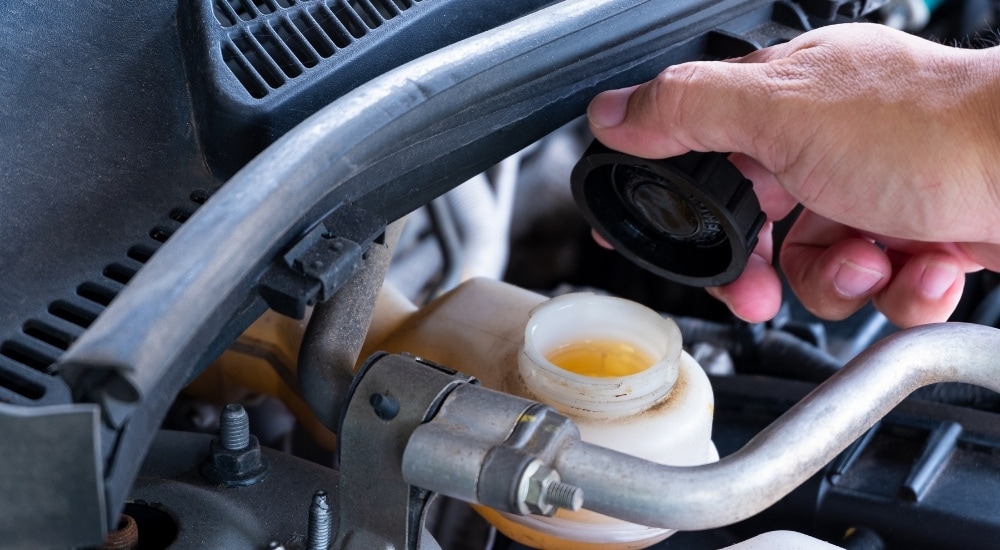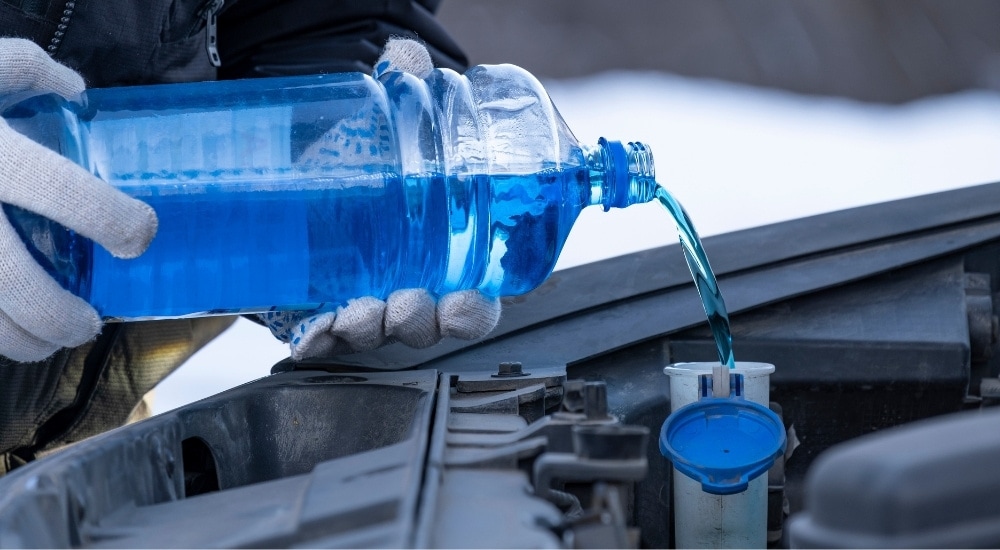Vehicle Fluid Guide: What You Need to Know About Your Vehicle's Fluids

Keeping a vehicle with an internal combustion engine up and running requires regular maintenance and frequent service, not just for the components but also for the fluids, since these play a vital role in keeping the vehicle moving, healthy, and even clean. Knowing when to top off a particular fluid or replace it outright can be the determining factor in the longevity of your car, truck, or SUV.
Now, before you schedule your auto service in Atlanta, we implore you to review this handy guide to learn when you should service a specific fluid and how you should be monitoring the fluid in your vehicle to get the most out of it, understanding what it does, why it's important, and when you should replace it.
We'll cover all of the basics of what sort of fluids you need to be mindful of when it comes to regular service intervals, as well as when to change or top them off based on various conditions. Of course, if you have any questions or would like to learn more about how your vehicle operates and what sort of fluids you need for a specific make and model, don't hesitate to reach out to us. We're always happy to help Atlanta drivers get the most out of their cars, trucks, and SUVs.
Engine Oil: What Does It Do and When Should You Change It?
The most important fluid for your vehicle—other than the gasoline, of course—is the engine oil. The reason for this is that it serves multiple purposes in helping to keep the engine cool, clean, and lubricated. While different vehicles may require different grades of engine oil, all of them still need such fluid to keep the engine functioning. If the oil becomes full of particulate matter, then it can reduce the effectiveness of the engine's lubrication and ultimately result in the engine accumulating wear and tear a lot quicker than it should.
This is why it's important to regularly have the engine oil changed, usually every 5,000 through 7,500 miles, depending on the vehicle and how often you drive. The more aggressive you are with the vehicle, the more often you need to have the oil changed. Some vehicles can go 10,000 miles or more before needing the oil changed if they're using full synthetic oil, and that can help reduce the frequency of when the oil is changed. However, it is imperative to get the oil changed as often as it is recommended in the vehicle's user manual to avoid any complications.
Transmission Fluid: What Does It Do and When Should You Change it?
Transmission fluid is to the transmission what engine oil is to the engine. Its main role is to lubricate the transmission gears to keep everything running smoothly. Additionally, the transmission fluid also works to keep the transmission cool while also working as a hydraulic fluid for smooth gear shifting. This gives it a multi-purpose role in ensuring your car, truck, or SUV shifts smoothly and is responsive on the road, whether it's a front-, rear-, all-, or four-wheel drivetrain.
Maintaining your transmission fluid is likewise similar to engine oil: sometimes, it can be topped off, but other times, it will need to be completely changed. How frequently you change it will depend on the vehicle. Some vehicles require changing the fluid every 30,000 miles, especially if you regularly drive off-road, do heavy-duty work, or drive aggressively. For vehicles used for frequent towing, long commutes, or off-roading, you'll need to change the transmission fluid more frequently. For vehicles that aren't driven as hard, you can go a lot longer—sometimes up to 70,000 miles before having the fluid changed.

Brake Fluid: What Does It Do and When Should You Change It?
Brake fluid is essential for keeping your vehicle responsive when it's time to stop because it's a high-pressure fluid that works to apply force to the calipers, which in turn clamps the brake pads to the rotors to slow the vehicle down. This is accomplished by depressing the brake pedal, which sends the brake fluid through the brake line. However, if there is a leak or air bubbles in the brake line, you will lose braking power—maybe even fully.
Unlike other fluids, the brake fluid doesn't incur contamination from common usage, so it only needs to be topped off when the fluid is low. This is typically cued to you by a dashboard light, or you might notice the brake pedal sticking or the brakes making straining noises because the pads aren't clamping correctly. The brake fluid should be checked regularly and replaced between three to five years, depending on the vehicle and how much wear and tear it has incurred. It is sometimes suggested to have the brake fluid changed every 30,000 to 45,000 miles.
Coolant: What Does It Do and When Should You Change It?
Engine coolant is designed to keep the engine cool through a complex process of carrying heat out of the engine bay. It accomplishes this by being moved through the engine bay and picking up the heat from the engine so that the heat can be cooled through the radiator and then carried back to the coolant tank to repeat the cycle. The coolant helps prevent corrosion, helps reduce overheating, and helps prevent as much wear and tear on the engine as possible.
The coolant should be changed at intervals relative to the vehicle type, as well as the frequency of how often you use the vehicle, and the type of coolant required. This can range from 60,000 miles for more commonly used vehicles or up to 100,000 miles for vehicles that can manage to go longer distances before having to top off or replace the coolant. Intervals between coolant changes can range from three to six years, depending on the size and type of vehicle you have; your owner's manual can show you the appropriate times for your specific make and model.
Wiper Fluid: What Does It Do and When Should You Change It?
Windshield wiper fluid isn't as much of a priority as the other vehicular fluids, but that doesn't mean it doesn't play a role in your car's operation. The thing about wiper fluid is that it's useful year-round while driving in Atlanta because it keeps the windshield (and potentially the rear glass) clean, especially when you're driving in sleet, through dust, or on dirt roads. However, unlike the other fluids, you don't need to change or filter out the windshield wiper fluid because it doesn't go through processes that result in it becoming contaminated.
This is nice because it means you don't need to monitor the wiper fluid based on your miles driven; instead, just focus on how much you use it. Also, unlike the other fluids, you don't have to completely replace it due to particulate matter or degradation in quality; instead, wiper fluid simply needs to be topped off when it starts to get too low.

Topping-Off Your Vehicle's Fluids at the Right Time
Now that you know more about your vehicle's fluids, you should be more aware of why and when to schedule their servicing—and if you're looking for a high-quality service center in Atlanta, we can help.
At the Hendrick Automotive Group, we have certified technicians and highly skilled mechanics who can help you keep your vehicle running as it should. If you need guidance on the most effective service routines for your make and model, come to us; we'll provide the highest-quality top-offs, changes, or replacements of your vehicle's fluids.
 AdChoices
AdChoices